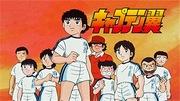The appeal and reviews of "Glass Mask": A thorough analysis of the moving behind-the-scenes

"Glass Mask": The appeal of the short animation and its backgroundGlass Mask is a short anime series that aired in 2013 and is based on the popular manga Glass Mask by Suzue Miuchi. The anime was produced in a short format of just three episodes, each six minutes long, and aired on TwellV. It was directed by Eri Asahi, animated by DLE, and produced and written by the Glass Mask Production Committee. In this article, we will explore the appeal and background of Glass Mask in detail, as well as provide a review and recommendation. The appeal of the original "Glass Mask"Glass Mask is a long-running manga by Miuchi Suzue that began serialization in 1976 and depicts the growth, setbacks, and success of Kitajima Maya, a young girl aspiring to become a stage actress. The original work is known for its intricate storytelling and deep psychological portrayal of its characters, and has captivated many fans. In particular, Maya's relationship with her rival Himekawa Ayumi and her bond with her teacher Tsukikage Chigusa have left a strong impression on readers. How to capture the appeal of the original work in a short animated film was a major challenge for "Glass Mask." In order to convey the essence of the original work in a short amount of time, the selection of the story and the portrayal of the characters are extremely important. The story and structure of "Glass Mask""Glass Mask" is based on the original episodes, but develops its own story. Although it is a short series of three episodes, each episode is independent, so viewers can enjoy it in a one-off format. Below is an overview of each episode.
These episodes have succeeded in extracting important elements from the original work and conveying them effectively in a short amount of time. In particular, the detailed depictions of the characters' expressions and movements have been designed to make it easier for viewers to empathize with them. Animation and character designThe animation of "Glass Mask" is where DLE's technical capabilities shine. By depicting the characters' movements and expressions in a rich manner in a short amount of time, it leaves a strong impression on viewers. In particular, Maya's performance scene on stage faithfully reproduces the atmosphere of the original work while making use of the expressive power that is unique to animation. The character designs also respect the image of the original work, while incorporating the anime's own unique style. The individuality of the characters is well-drawn, such as the sparkle in Maya's eyes and Ayumi's cold-hearted expression. The background and costume designs are also meticulously designed, pursuing visual beauty. Voice actors and musicThe voice actors of "Glass Mask" are also not to be missed. The voice actor who plays Kitajima Maya delivers a performance that brings out the best in the original character. In particular, Maya's stage performance scenes have the power to express a wide range of emotions and draw the audience in. The voice actor who plays Himekawa Ayumi also skillfully portrays her cold-heartedness and inner conflict. Music is also an important element in enhancing the appeal of anime. The background music plays a role in building up emotions as the story unfolds, enhancing the viewers' emotions. In particular, the music in Maya's stage scenes has the effect of further enhancing her acting. Ratings and Recommendations"Glass Mask" is a short anime that succeeds in conveying the charm of the original work. Although it is a short series of three episodes, each episode is independent and viewers can enjoy it in a one-off format. In addition, each element, such as animation, character design, voice acting, and music, is integrated to a high level, making it a visually and aurally satisfying work. Here are some reasons why I recommend this anime:
Related information and recommended contentWe will introduce related information and recommended content to help you enjoy "Glass Mask" even more.
summary"Glass Mask" is a short anime that succeeds in conveying the charm of the original work. Although it is a short series of three episodes, each episode is independent and viewers can enjoy it in a one-off format. In addition, each element, such as animation, character design, voice acting, and music, is integrated to a high level, making it a visually and aurally satisfying work. For fans of the original work, this is a valuable work that allows them to enjoy the essence of the original work in a short amount of time, and for new viewers, it will be an opportunity to pique their interest in the original work. Furthermore, by utilizing related information and recommended content, you can deepen your understanding of the work and enjoy it even more. Through "Glass Mask", please experience the story of the growth, setbacks, and success of a girl who aspires to be a stage actress. |
>>: Gargantia on the Verdurous Planet: Epic adventure meets profound themes
Recommend
The appeal and reviews of DRAGON QUEST [Season 1]: Relive the excitement of the first series
Everything about the first season of the Dragon Q...
Bullet Train actor responds to 007 rumors: I don't want to determine my future
It was recently reported that Aaron Taylor-Johnso...
Review of "Mari and the Three Puppies of Yamakoshi Village": A moving story and charming characters
Mari and her three puppies from Yamakoshi Village...
The final trailer of the League of Legends spin-off animation "Battle of Two Cities" was released
Netflix released the final trailer of "The B...
Namu Amida Butsu! Rendai UTENA - A thorough review of the fascinating story and deep insight into the characters
Namu Amida Butsu! Lotus dais UTENA - Namu Amida B...
The latest theme song of the TV animation "Crossbow Sentai H×EROS" is released and will be broadcast on July 3
The TV animation "Drophead Sentai H×EROS&quo...
Slam Dunk: IMAX version confirmed
The new animated film "THE FIRST SLAM DUNK&q...
Review of "Momoko Sakura Theatre Coji Coji": The charm of its unique worldview and humor
Momoko Sakura Theatre Coji-Coji: A fusion of fair...
Kiriku and the Witch: A thorough analysis of the adventures and moving story of a brave boy
Kiriku and the Witch - A moving story and its app...
The appeal and review of "Psycho Armor Gobarian": A must-see mecha anime masterpiece
Psycho Armor Gobarian: A battle between invasion ...
Official apology: Kidd stole the poster of the new movie version of "Detective Conan"
The official announcement of the animated film &q...
Review of the movie "SSSS.GRIDMAN": Rediscovering its charm
The appeal and evaluation of the theatrical compi...
The famous Japanese actor Shiga Kotaro died of illness. He had starred in "Hanzawa Naoki"
According to Japanese media reports today (April ...
Big production! Zack Snyder's "Army of Death" first releases Chinese subtitle trailer
Zack Snyder and Netflix's zombie movie "...
A thorough analysis of the moving story and musical appeal of BanG Dream! Episode of Roselia Ⅱ: Song I am!
BanG Dream! Episode of Roselia Ⅱ: Song I am. - Mo...









